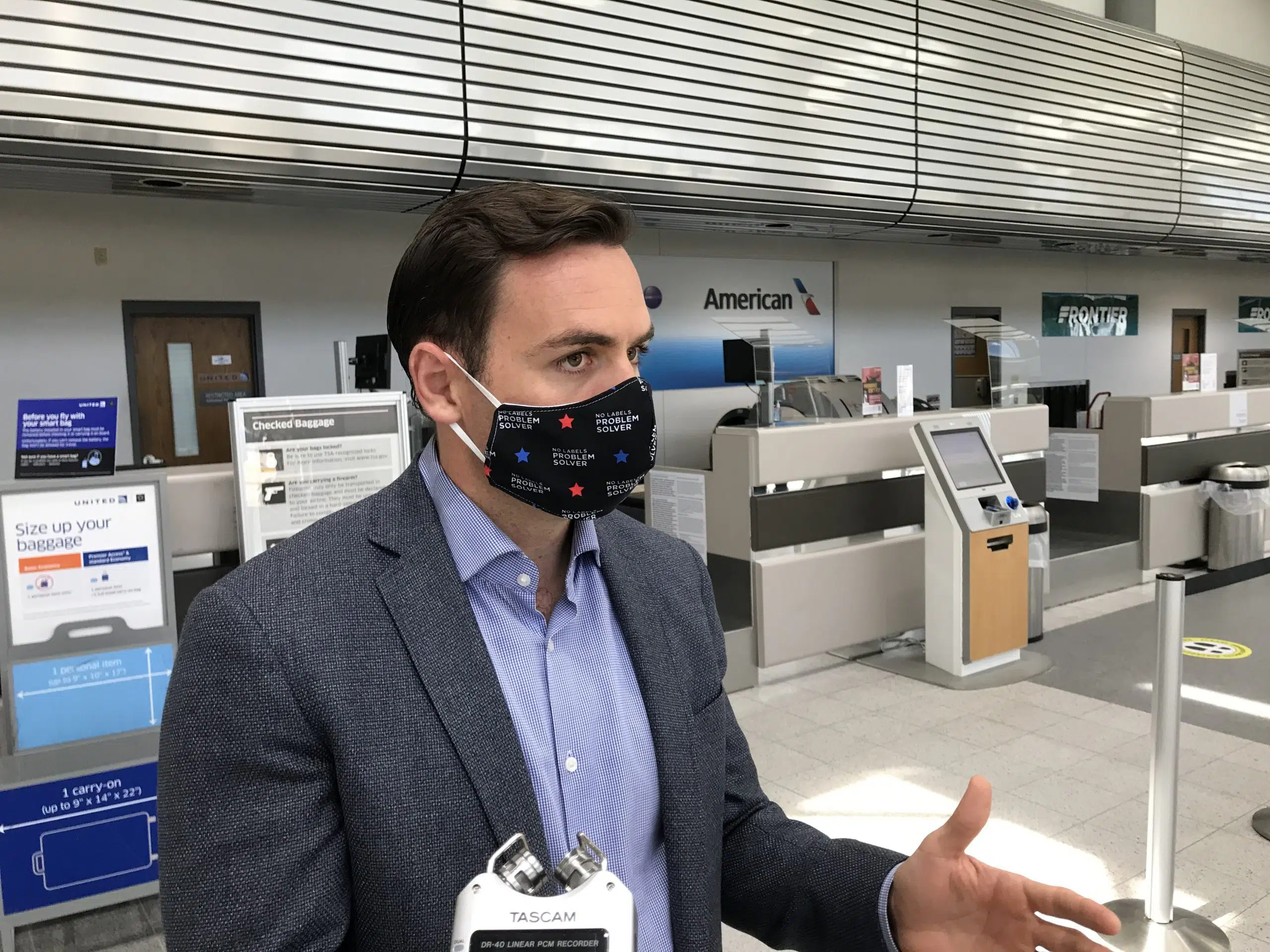GREEN BAY, WI (WTAQ) – In the wake of scathing comments that President Trump intentionally downplayed the severity of COVID-19 at the onset of the pandemic, one local lawmaker says the U.S. was already behind by the time anyone started taking action.
Congressman Mike Gallagher quickly disputed the claim that the president was promoting a false narrative.
“I think we’re going to see a steady stream of these type of media apparitions over the next couple months,” Gallagher said. “Fauci has already gone out there and said the president didn’t misrepresent any information.”
But Gallagher also points out that early on, the United States wasn’t taking the virus seriously and was receiving incorrect information. Both issues, he says, stunted the initial response to the virus making landfall on U.S. soil.
“I think it’s fair to say that nobody acted quickly enough in January…I remember when Fauci went on TV and assured us that we don’t have to worry. That China was going to have it contained, there was a very low risk of human to human transmission – that was mid-January,” Gallagher said. “A week later, I tweeted out ‘No we’re not taking this seriously enough, we need an immediate travel ban.’”
This is 100% right. We are not acting aggressively enough. We need a targeted travel ban immediately or this will get much worse and we will see human-to-human transmission in the US. https://t.co/kSgb1LqjUm
– Rep. Mike Gallagher (@RepGallagher) January 30, 2020
Hindsight is 20/20, but in a situation like this, Gallagher wasn’t shy about placing blame.
“I think we’re going to look back on this and realize we should’ve understood, based on our knowledge of the Chinese Communist Party and how evil they are, that we were not getting accurate data and we all should have acted way more quickly at the start of this crisis,” Gallagher told WTAQ News.
Gallagher argues that the U.S. should have empowered the private sector sooner, loosened regulations, and allowed some of the tests that are currently online to have been immediately available so there would be a better understanding of spread in the country.
But again, that wasn’t the case. And Gallagher says it’s always important to learn from mistakes.
“I do think it’s imperative that we learn the right lessons, particularly in Wisconsin. We shouldn’t just depend on the federal government for expertise and for stockpiles of basic goods. We should bring back state level strategic stockpiles. We should invest in our own lab capabilities to make sure our private sector is able to make basic things,” Gallagher said. “The biggest lesson learned in all of this is – we can’t remain dangerously dependent on China for the manufacturing of basic medical devices, drugs, and other things that we’re going to need in a crisis. We have to bring that manufacturing back to the United States and hopefully bring it back to Wisconsin – preferably northeast Wisconsin.”
Meanwhile, there is progress moving forward to work the nation out of the pandemic with several potential vaccines now in clinical trials. Gallagher, like many others, is ‘cautiously optimistic’ as the world awaits the results.
“Even if we get a vaccine by October, it’s going to be hard to distribute it. That’s why the states need to be preparing right now for a quick and equitable distribution of the vaccine,” Gallagher said. “I’m confident that the FDA – even though Operation Warp Speed is designed to get this thing out there quickly – they’re not going to compromise the integrity of the tests they need to do to make sure that the vaccine is ready…I really worry that you’ve had some major politicians like Kamala Harris go out there and say we shouldn’t trust a vaccine. I mean, it’s kind of weird, crazy anti-vaxxer rhetoric.”
In the meantime, Gallagher urged everyone to take the precautions they can and do the ‘basic things’ like getting an annual flu shot.









